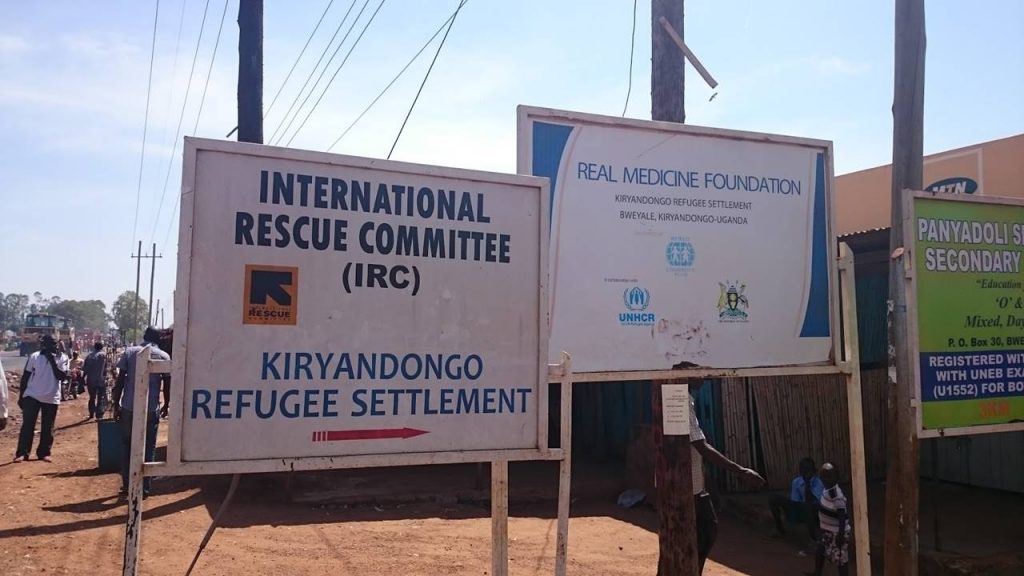Researching the Legacies of War in Uganda with our Postgraduate Students
This blog has been published by Dr Jessica Hawkins, Lecturer in Humanitarian Studies. The blog discusses the research field trip in Uganda which took place at the start of January.
For the past ten days, seventeen of our postgraduate students studying on our MA Humanitarianism and Conflict Response and our MSc International Disaster Management have spent time in Northern Uganda researching the legacies of war. The students will soon be relaying their experiences in blog posts here, however, the purpose of this post is to provide the underlying aims and objectives of the research visit. Many of our students start our postgraduate courses with either very little research experience in humanitarian settings or indeed, have not had the opportunity to visit places in the Global South. Our module, Humanitarianism and Displacement: Researching the Legacies of War offers students the opportunity to develop essential research skills in what is now a safe and stable environment, namely Northern Uganda.
The region has seen conflict and violence since the first British colonial officers deemed it necessary to expand the borders of “Uganda” in the effort to control more territory than their arms race rivals, Germany in the early twentieth century. Leaders, such as Milton Obote and Idi Amin built their support on the rhetoric of righting colonial wrongs, yet wielded destructive military power over the Ugandan people. Then, with the arrival of President Museveni in 1986 (still the President today), the North was transformed into a battle zone as the Lord’s Resistance Army, led by Joseph Kony, and the government army, waged war against each other, with the Acholi people in the North being the main victims. Forced displacement, terrible conditions in IDP camps, abductions of children, burning of villages and the mass appropriation of land have resulted in a region, which exhibits much higher poverty rates compared to the rest of the country.* In addition, the area is now seeing one of the biggest influxes of refugees in the world as South Sudanese flee conflict across the border to the north.
This is the context for our research to understand how humanitarian responses have worked in a region which saw mass displacement in the 1990s and 2000s and is now seeing huge numbers of refugees. Through nine lectures in semester one, we steered our students through the theory and literature on humanitarianism and displacement. Within this, we focused on three themes related to displacement which we believe are the main issues currently in Uganda (based on past research visits). The first considered gender based violence, something which cuts across both survivors of the LRA conflict (those forced into the LRA and those within IDP camps) and for those who are now in refugee camps and have experienced the war in South Sudan. The second theme examined the environment and its relationship with displacement. As mentioned above, on exiting IDP camps at the end of the conflict, many Acholi found they no longer had the “rights” to the land they once owned, farmed and lived on. More literate members of society had drawn contracts with the government making land legal and consequently, pushing out those who did not have the means to fight for their customary rights in formal courts. Further, the huge number of refugees in the country is putting pressure on a region’s resources, which have always been marginalised by the national government, bringing in to question Uganda’s refugees welcome policy. The final theme examines the processes of justice and reconciliation within the context of both the LRA conflict and for those refugees who wish to return “home”, whatever that may be.
The students were asked to conduct literature reviews on one of these themes and then devise a list of research questions for the visit to Uganda this January. In the final few lectures, we examined these questions and developed strategies for understanding whether these were feasible in certain contexts and within our time frame. The ethics of conducting research in fragile environments were deliberated on as the basis for these strategies.
The final element to the teaching and a part of the research visit involved the notion of “walking”. The practice of walking through a neighbourhood, city or area offers ‘insights into the dynamic emotional, affectual and physical relations of power-differentiated people within the everyday fabric of urban life’ (Warren 2017: 789). We therefore used this medium not only in Uganda, but also in Manchester to understand the spaces of hidden conflict, violence and much bigger globalised processes of social change, which affect the day-to-day lives of individuals. In Uganda, three walks would take place: first in Kampala the capital city, the second in one of the biggest refugee camps, and third in Gulu, the former epicentre of the LRA conflict.
On return, the students will make an assessment of their experiences of conducting research in situations of past conflict and displacement and most importantly, will discuss the relevance of the themes and the literature for Uganda and South Sudanese refugees today… TBC.
*In 2013 the Northern region had 47% share of the country’s poor (World Bank 2016).



0 Comments